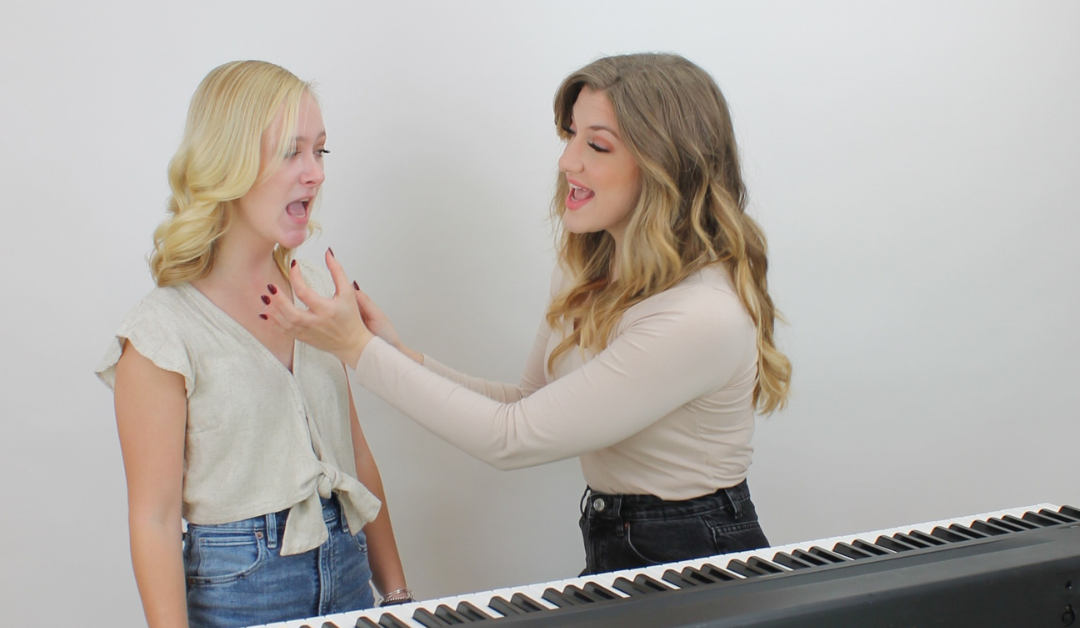One of the most frequently asked questions in the world of music is, “Can you really teach anyone how to sing?” (The second is “Is It Possible to Expand My Range / Sing Higher?” but that’s a different blog post. 😆)
It’s a question not just from hopeful beginners but also from seasoned professionals looking to refine their skills. Whether you’ve been told you have a terrible voice or you’re simply wondering if you can improve, the answer is more encouraging than you might think.
Can a Bad Singer Become a Great Singer?
The idea that someone who sings poorly can transform into a great singer might seem far-fetched to some. However, the reality is that vocal training can lead to significant improvements in one’s singing ability. The notion of a “bad singer” is often a misnomer. (If I had a penny for every time someone said “I can’t carry a tune to save my life!” and then it turns out they actually have talent… I’d be rich.) Most people who are perceived as poor singers simply lack the proper training and technique. I have personally coached many “bad” singers to become a great singer.
With consistent practice and the right guidance, many so-called “bad singers” have turned their voices around. Working on fundamentals techniques such as pitch accuracy, breath control, and vocal range can drastically improve the quality of one’s singing. Remember, even renowned singers were not born perfect; they have invested time and effort into honing their craft.
Can You Become a Good Singer?
If you’ve ever asked yourself, “Can you become a good singer?” the answer is a resounding YES. Becoming a good singer is a completely attainable goal. But it requires dedication, practice, and proper instruction. One of the key elements in becoming a good singer is understanding your voice and its unique qualities. Every voice is different, and learning how to use your natural instrument to its fullest potential is crucial.
Many beginners start with basic vocal exercises that strengthen the vocal cords and improve control. These exercises might seem tedious at first, but they lay the groundwork for more advanced techniques. As you progress, you’ll learn about dynamics, phrasing, and emotional expression, all of which contribute to a well-rounded singing ability.
Can You Learn to Sing?
The question “Can you learn to sing?” is one that many aspiring vocalists ponder. The simple answer is yes, anyone can learn to sing, (barring a physical deformity of some kind.) Just like learning any other skill, singing requires practice and patience. Whether you’re starting from scratch or looking to improve your existing abilities, there are structured methods and exercises designed to help you develop your voice.
One of the most effective ways to learn to sing is through regular practice. This includes not only singing songs but also engaging in specific vocal exercises that “trick” your voice and target areas such as pitch, tone, and breath control. Many beginners find it helpful to work with a vocal coach who can provide personalized feedback and guidance. Online resources, such as video tutorials and singing apps, can also be valuable tools in your learning journey. *** But I highly recommend that singers work with a vocal coach who is an expert with the mix voice. Especially if you have previous experience with choir or classical singing, but you want to apply that into commercial or pop styles of music.
The journey to becoming good at singing involves understanding the mechanics of your voice. This includes learning about breath support, vocal resonance, and articulation. A good singer doesn’t just hit the right notes; they also convey emotion and connect with their audience. This emotional aspect of singing can be developed through experience and practice.
Can Everyone Be a Good Singer?
The idea that “can anyone be good at singing?” is a hopeful one. This question often sparks debate among musicians and vocal coaches. While it’s true that some people may have a natural affinity for singing, the majority of people can significantly improve their singing ability with the right training. Not everyone will become a world-famous vocalist, just like not everyone will become the highest scoring quarterback, but achieving a good level of singing proficiency is within reach for most individuals.
Factors such as physical health, vocal anatomy, and even psychological barriers can impact one’s singing ability. However, with dedication and proper training, these obstacles can often be overcome. It’s important to set realistic goals and understand that progress might be gradual. Celebrate small victories along the way and stay committed to your practice.
Singing is both an art and a science, and it touches physical, emotional, and even spiritual areas of our lives. Those who are the strongest in all 3 areas have the best result when taking steps to improve their singing. (For example, a student of mine years ago was living in an abusive home. She struggled with voicing her needs in everyday life, so she struggled with singing as well. Years later, when she was removed from the abuse and got some therapy, her singing skill improved dramatically!)
The Importance of Consistent Practice
One of the most crucial aspects of learning to sing is consistent practice. Like any skill, singing requires regular and focused effort. Daily vocal exercises help to strengthen the vocal cords and improve overall vocal health. It’s not just about singing more but singing smarter. Focus on specific techniques and areas that need improvement, and gradually build up your stamina and control.
Finding the Right Vocal Coach
A significant factor in your singing journey is finding the right vocal coach. A good coach can provide personalized feedback, identify your strengths and weaknesses, and guide you through a structured learning process. But again, look for a coach who understands the mixed voice and can not only teach it but demonstrate it so they can show you! Whether you’re looking to sing pop, rock, musical theater, or jazz, having a coach who has experience in your preferred genre can make a big difference. In fact, for many singer teaching can become an amazing way to practice AND get paid to express themselves at the same time! (Check out my blog “How to Make Money as a Singer”)
Technology and Learning to Sing
In today’s digital age, technology plays a significant role in learning to sing. I myself have the world’s first Singing App where you can find free tools, community, and live help all in one. These online tools can be especially useful for those who may not have access to a private vocal coach. However, it’s important to use these resources wisely and ensure they complement your overall learning strategy.
So, can you really teach anyone how to sing? The answer is yes. While natural talent can give some individuals a head start, the majority of people can learn to sing well with proper training, consistent practice, and dedication. Whether you’re starting from scratch or looking to improve your existing skills, remember that the journey of learning to sing is both rewarding and transformative. So go ahead, embrace your inner vocalist, and start singing your heart out.






